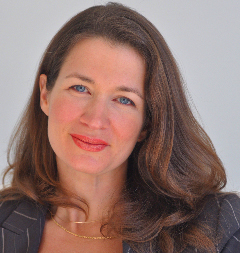She wondered if a Sweet Sixteen would do the trick but I had a feeling that a Humanist rite-of-passage type ceremony — that carried some of the weight of a Bar/Bat Mitzvah might actually be more meaningful. In both the Jewish and Catholic traditions these coming of age ceremonies are about helping a child transition to adulthood through their faith community. Can children become good, engaged members of their broader community as they transition without a religious practice behind them? Secular Humanists — also believe we have ethical and moral obligations to our communities (not through God but as human beings) — and Humanist Officiants can offer similar, though secular transition ceremonies that are creative and innovative and, where a child can learn how they can be ethical and moral members of their community as they grow into adulthood (It’s important to note that a single ceremony won’t ever be enough. This has to be backed up and reinforced at home). In fact in European models of such ceremonies, children may be tasked with doing research on family and community values, role models and heroes together with important members of their community. They can also research and get involved with purposeful community service as a means of preparing for such an event — something they might want to discuss with a Humanist counselor, officiant or someone else that might help them prepare for the event. Such preparation and thoughtfulness takes this rite of passage from being a simple birthday celebration to one that helps a child examine rights and responsibilities that go along with responsible and compassionate citizenship. Further, and also in line with Humanist values, this significant rite of passage can help deepen their personal link with their cultural heritage.
Indeed in several parts of Europe such as Germany, Finland, Iceland and Norway, secular organizations (those not aligned with any religion and also Humanists) have long organized coming-of-age ceremonies, which are also referred to as civil confirmations as a way of preparing secular or unaffiliated adolescents for their life as adults. For instance, in Germany more than half of all kids still take part in what is called a “youth ceremony” (English translation). Leading up to the ceremony the youth attend specially arranged events, camps or a course, in which they work on a range of topics including philosophy, history, multiculturalism, cultural studies, social justice, creativity, civil rights, technology and environmentalism. They may also learn life skills that include how to get a job, lifestyle choices and interpersonal relations.
While these types of ceremonies are not nearly as common in North America, it is important to know they are out there — and like Humanist weddings, they are growing. They just might take a little more work and creative energy to find a secular coming of age ceremony and make it happen…at least for the time being.


